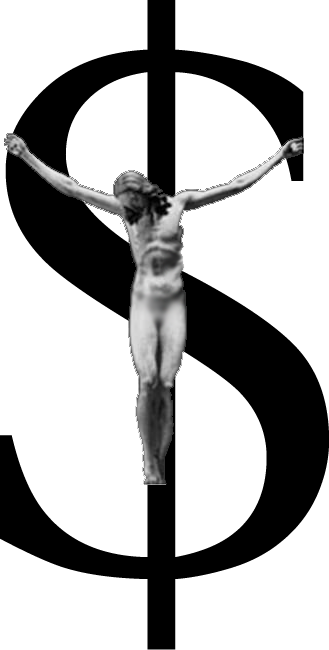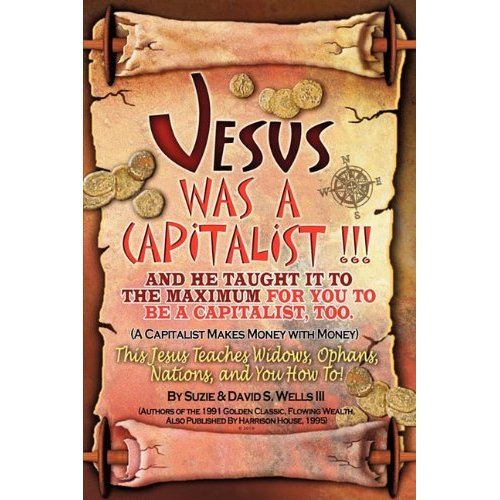TGIF: Kristen Wiig and Jon Hamm
httpv://www.youtube.com/watch?v=pwc446g2PPU
They’re teamed up in the Wiig-scripted Bridesmaids, and this SNL sketch from a year ago demonstrates why.
After the jump, Jon Hamm as Don Draper works some 1960’s Madison Avenue magic on Mad Men. The long delayed fifth season begins in January.
“Free Speech” and “Mob Language”
Michael’s recent posting of Sarah Palin’s latest free association on, er, whatever that guy’s name is, came to mind today as I was reading The Well-Tempered Critic, one of Frye’s undeservedly lesser known books. Frye’s discussion of the dangers of a bastardized use of language casts a glaring light on America’s ongoing descent into mental darkness. Characteristically, he approaches the problem from the perspective of education, language, and the imagination. What he has to say bears directly on the kind of “automatic gabble,” to borrow his phrase, that issues from the mouths of so many American politicians and pundits, this being the only verbal form that could possibly give expression to the mob mentality of the most recent incarnations of the American right-wing. His insights clarify, in particular, ongoing debates about freedom of speech, and what that freedom actually demands of us as members of a free and democratic society.
To set the context, Frye points out that “rhetoric from the beginning has been divided into three levels, high, middle, and low,” “originally suggested by the three classes of society,” but which Frye suggests should be used in a way that dispenses with “the misleading analogy of social classes” and “some of the metaphors lurking in the words ‘high’ and ‘low’.” The middle style is “the ordinary speaking style of the articulate person,” and “its basis is a relaxed and informal prose, that is, prose influenced by an associative rhythm.” This is “the language of what ordinarily passes for thought and rational discussion,” Low style is “a colloquial or familiar style,” which Frye believes “should be regarded simply as a separate rhetorical style, appropriate for some situations and not for others.” High style, he observes, is, conventionally, more often identified with its literary form, those moments of the sublime associated, for example, with “great passages in Shakespeare or Milton.” But in ordinary speech it “emerges whenever the middle style rises from communication to community, and achieves a vision of society which draws speaker and hearers together into a closer bond. It is the voice of the genuine individual reminding us of our genuine selves, and of our role as members of a society, in contrast to a mob.” It is “is ordinary style, or even low style, in an exceptional situation which gives it exceptional authority.”
Frye, typically, illustrates his argument at one point with a number of historical allusions appropriate to the time (the book was published in 1961): he refers, for example, to Joseph Welch, the man whose spontaneous and impassioned eloquence abruptly ended the career of Joe McCarthy. The insights, it is safe to say, are just as resonant and illuminating with reference to our contemporary scene:
Genuine speech is the expression of a genuine personality. Because it takes pains to make itself intelligible, it assumes that the hearer is a genuine personality too—in other words, wherever it is spoken it creates a community. Bastard speech is not the voice of the genuine self: it is more typically the voice of what I shall here call the ego. The ego has no interest in communication, but only in expression. What it says is always a monologue, though if engaged with others, it resigns itself to a temporary stop, so that the other person’s monologue may have its turn to flow. But while it seeks only expression, the ego is not the genuine individual, consequently it has nothing distinctive to express. It can express only the generic: food, sex, possessions, gossip, aggressiveness, and resentments. Its natural affinity is for the ready-made phrase, the cliche, because it tends to address itself to the reflexes of its hearer, not to his intelligence or emotions. I am not suggesting that society can do without a great deal of automatic babble on ready-made subjects: I am merely saying that we limit the aspects of our personality that we can express with words if we devote ourselves entirely to such verbal quackery. (CW 21, 351)
*
But of course freedom has nothing to do with lack of training. We are not free to move until we have learned to walk; we are not free to express ourselves musically until we have learned music; we are not capable of free thought unless we can think. Similarly, free speech cannot have anything to do with the mumbling and grousing of the ego. Free speech is cultivated and precise speech, which means that there are far too many people who are neither capable of it nor would know if they lost it.
A group of individuals, who retain the power and desire of genuine communication, is a society. An aggregate of egos is a mob. A mob can only respond to reflex and cliche; it can only express itself, directly or through a spokesman, in reflex and cliche. A mob always implies some object of resentment, and political leaders who speak for the mob aspect of their society develop a special kind of tantrum style, a style constructed almost entirely out of unexamined cliches. Examples may be heard in the United Nations every day. What is disturbing about the prevalence of bad language in our society is that bad language, if it is the only idiom habitually at command, is really mob language. (352)
*
High style in ordinary speech is heard whenever a speaker is honestly struggling to express what his society, as a society, is trying to be and do. It is even more unmistakably heard, as we should expect, in the voice of an individual facing a mob, or some incarnation of the mob spirit, in the death speech of Vanzetti, in Joseph Welch’s annihilating rebuke of McCarthy during the McCarthy hearings, in the dignity with which a. New Orleans mother explained her reasons for sending her white child to an unsegregated school. All these represent in different ways the authority of high style in action, moving, not on the middle level of thought, but on the higher level of imagination and social vision. The mob’s version of high style is advertising, the verbal art of penetrating the mind by prodding the reflexes of the ego. As long as society retains any freedom, such advertising may be largely harmless, because everybody knows that it is only a kind of ironic game. As soon as society loses its freedom, mob high style is taken over by the new masters, to become what is usually called propaganda. Then, of course, the moral effects become much more pernicious. Both advertising and propaganda, however, represent the conscious or unconscious pressure on a genuine society to force it into a mass society, which can only-be done by debasing the arts. (353)
*
Except in the nonverbal arts, like mathematics or music, there are no wordless thoughts, nor can any genuine ideas be expressed in undeveloped speech or writing. The undeveloped associative rhythm can only reproduce the associative process: by itself it can never express thought, much less imagination. What it can express, and effectively, is hatred, arrogance, and fear. This makes it a considerable danger at a time when, though some of us are afraid of science, we hive so much less to fear from science than from a misuse of words. However uninhibited, it is not free speech, and at a time when most of us feel rather helpless about how much we can do in the world, free speech is the one aspect of a genuine society that we all hold in our hands, or mouths. What the critic as a teacher of language tries to teach is not an elegant accomplishment, but the means of conscious life. Literary education should lead not merely to the admiration of great literature, but to some possession of its power of utterance. The ultimate aim is an ethical and participating aim, not an aesthetic or contemplative one, even though the latter may be the means of achieving the former. If free speech is cultivated speech, we should think of free speech, not merely as an uninhibited reaction to the social order, a release of the querulous ego, but as the verbal response to human situations, a response which establishes a context of freedom. The subliterary associative response is antisocial; the cliche or accepted idea response is a symptom of social stagnation; the free response, when verbal, is one participating in the lucidity of prose and the energy of verse. (353-354)
Bush Tax Cuts: 10 Years!
httpv://www.youtube.com/watch?v=UDC8pmfmYc4
Here’s how the Bush tax cuts — enacted ten years ago this week — exploded the American deficit.
Quote of the Day: Invisible Hand / Hand of God
Jesus drives the money changers from the temple
“The most idolatrous claim of the Christian right is that the invisible hand of the free market is none other than the hand of God, and any attempt to regulate the free market, according to this theology, belies a lack of faith in God.” — Andrew Walsh, author of Religion, Economics and Public Policy.
Frye: “Laissez-faire is Anti-Christian”
Today we end the tease and roll out Frye himself on the issue for which we’ve been laying the ground work the last little while: the witch’s brew of Christianity, Amercian Exceptionalism, and laissez-faire.
Here is Frye painstakingly analyzing American ideology as part of a United Church commission to study modern culture and its points of conflict with Christianity. The aim is to determine “the role of the church in the redemption of culture” (CW 11, 237). The report appeared as The Church and the Secular World (Toronto: Board of Evangelism and Social Service, 1950). It was a collective project, but Frye wrote the Tenets of Modern Culture section, from which this excerpt is taken.
1. The oldest civilization in the modern world is the American one, which was established in its present form in 1776. Modern France dates from the French Revolution; Great Britain began to assume its modern form with the Reform Bill of 1832; Germany and Italy entered the modern world in 1870; China in 1912; Russia in 1917, and so on. The party now in power in America [Democratic] is the oldest political party in the world, and the Stars and Stripes is one of the world’s oldest flags.
2. The axioms of this culture are essentially those of eighteenth-century Deism. There is no real world except the physical world and the order of nature, and our senses alone afford direct contact with it. Religion can provide no revelation of another; nature is red in tooth and claw; we must look to God only in man, and in nature to the extent that it is subdued by man. The essence of religion is morality, dogma and ritual being parasites that settle on it in decay. The chief end of man is to improve his own lot in the natural world, and the essential meaning of human life is the progressive removal of the obstacles presented by nature, including atavistic impulses in man himself. This is done chiefly through the advance of science, by which is meant the increase in the comfort of the body, of which the mind is a function.
3. The problems of American civilization are connected with the facts: (a) that these absurd notions, however inadquate to the modern world, form part of an unofficial established church in American society, are taught in schools, and are impressed on American children at their most impressionable age; (b) that the real churches have been too deeply contanimated with such ideas themselves to make much effective resistance against them; (c) that they form part of the ideology, not of democracy, but of laissez-faire, and yet have kidnapped and secularized the democratic spirit in American life, so that many Americans regard democracy as inseparable from laissez-faire.
4. The axioms and postulates of laissez-faire as the above indicates, are anti-Christian, and lead in the direction, not of democracy, but of managerial dictatorship. Such a dictatorship may be established in either of two ways: (a) through the consolidation of the power of the oligarchy (Fascism); (b) through the seizure of power by a revolutionary leadership established within the trade unions (Communism). The preservation of democracy thus depends on a balance of power held by the state and its elected representatives against the threat of a coup d’etat coming from either end of the economic machine. But Fascism and Communism claim to be the logical forms of true democracy, and both claim to be fighting, not democracy, but one another, for each maintains that democracy merely the propaganda facade of its rival. (CW 11, 237-8)
(Graphic from the article “Is Jesus a Socialist?” in examiner.com, which is worth reading)
Amina Abdallah Update
Amina Abdallah’s reported abduction in Syria two days ago has opened up a whole series of unexpectedly baffling questions. It is understandable that someone in her situation would have to protect her identity as best she could, but that identity seems to have disappeared into a hall of mirrors. Ms. Abdallah, who blogs as “A Gay Girl in Damascus,” gained international attention in April when she reported in great detail evading arrest by Syrian security forces. She has since become a leading voice of resistance as the Assad regime brutally puts down the popular uprising against it. Now it appears that Abdallah’s identity cannot be independently confirmed. The Guardian wanders into the maze here.
The photo we posted yesterday (since taken down) is now known not to be her, even though the woman depicted in it has appeared in a number of different photographs that have been widely published for some time. That woman is in fact a resident of London and apparently has no relation to Abdallah.
Picture of the Day
What’s wrong with this picture? Is it Fox News providing extensive coverage of Sarah Palin’s allegedly non-political-I’m-just-vacationing-with-my-family-and-a-hundred-reporters-in-tow bus tour? No, that’s not it.
Nope, it’s that the photo Fox News producers chose to display in the sidebar is not Sarah Palin.
It’s Tina Fey.
And is that a “blue eyed” “blonde” we see there reading the “news”? It’s sweet that Fox News aggressively promotes this otherwise overlooked cohort of “journalism school” grads who major in hair flipping, fashion accessorizing, shouting down guests who deviate from talking points, and, of course, free form smirking as circumstances require. It’s made cable news what it is today.
“Why Evangelicals Hate Jesus”
We’ll be posting Frye on Christianity and laissez faire capitalism shortly, but we’re holding back a little because relevant material seems to be coming at us from all directions. Our friend Matthew, for example, has sent us a link to an article at religiousintelligence.com, “Why Evanglicals Hate Jesus.”
A sample:
Jesus unambiguously preached mercy and forgiveness. These are supposed to be cardinal virtues of the Christian faith. And yet Evangelicals are the most supportive of the death penalty, draconian sentencing, punitive punishment over rehabilitation, and the governmental use of torture. Jesus exhorted humans to be loving, peaceful, and non-violent. And yet Evangelicals are the group of Americans most supportive of easy-access weaponry, little-to-no regulation of handgun and semi-automatic gun ownership, not to mention the violent military invasion of various countries around the world. Jesus was very clear that the pursuit of wealth was inimical to the Kingdom of God, that the rich are to be condemned, and that to be a follower of Him means to give one’s money to the poor. And yet Evangelicals are the most supportive of corporate greed and capitalistic excess, and they are the most opposed to institutional help for the nation’s poor — especially poor children. They hate anything that smacks of “socialism,” even though that is essentially what their Savior preached. They despise food stamp programs, subsidies for schools, hospitals, job training — anything that might dare to help out those in need. Even though helping out those in need was exactly what Jesus urged humans to do. In short, Evangelicals are that segment of America which is the most pro-militaristic, pro-gun, and pro-corporate, while simultaneously claiming to be most ardent lovers of the Prince of Peace.
Amina Abdallah
Sometimes the scale of an atrocity like what is now going on in Syria is so large that it requires a single person whose fate becomes the only accessible measure of it. For me, that person is Amina Abdallah, who blogs as “A Gay Girl in Damascus.” She has already once escaped arrest and almost certain murder at the hands of Syrian security forces. She was abducted today. Please call or write the Syrian Embassy in Ottawa and let them know you are looking out for her. We cannot save everyone from these thugs, but we can let them know we would if we could.
46 Cartier St, Ottawa, ON K2P 1J3
(613) 569-5556
A worldwide list of Syrian embassies here.





